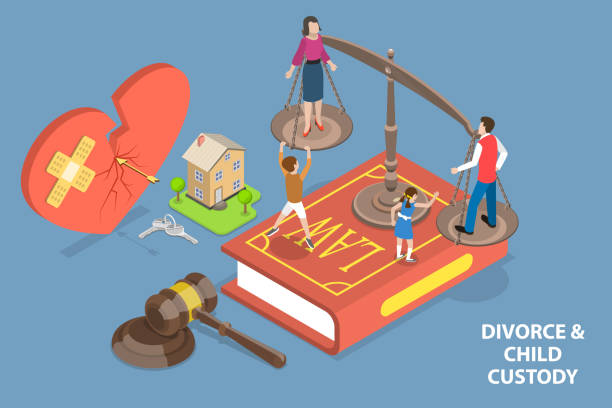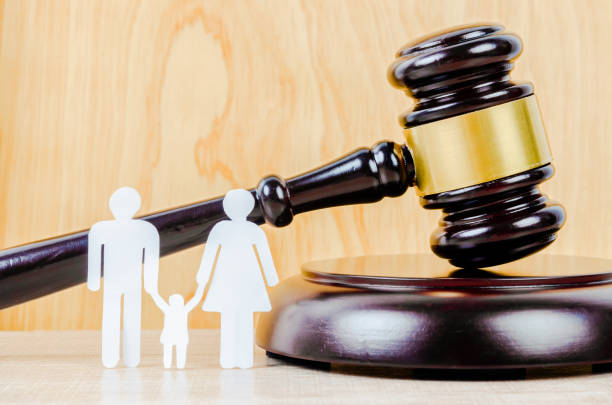A family court lawyer is your best defence in times of need when dealing with a family law issue. Family law is a complex and ever-evolving area of law that deals with some of the most personal and challenging issues in our lives.
From divorce and child custody to domestic violence and same-sex marriage, family lawyers play a vital role in helping Australians navigate the legal complexities of these matters.
But what are the most pressing family law issues in 2023? And how can we ensure that our laws are fair and equitable for all families, regardless of their structure or composition? What can a family lawyer do to help you resolve your family law issues?
This article will shed some light on the struggle you are currently facing by outline how a family lawyer can be of assistance to you and your family in these challenging times.
What Is a Family Court Lawyer?
A family court lawyer, also known as a family law attorney, is a legal professional who specialises in providing legal services related to family relationships, such as:
- Divorce
- Adoption
- Child custody and support
- Prenuptial agreements
- Other family law issues
What Is Family Law?
Family Law in Australia is the body of law that governs legal issues related to family relationships, including marriage, divorce, child custody, and property division. The Family Law Act 1975 is the main source of Australian family law, and it covers what happens when there is a dispute regarding the care of children or division of property after the end of a relationship.
Here is an overview of the Act:
- The Family Law Act applies to children in all circumstances including marriage, a de facto relationship, or if the parents were never in a formal relationship.
- The Act is gender-neutral and does not make assumptions about parenting roles. When a family court is making a decision about a child, the court will make an order that is in the best interests of the child.
- Under the Act, the court is required to give greater weight to the consideration of the need to protect children from harm.
- If parents can’t agree on arrangements for children after separation, specialist family mediation services can help parents come to a mutually agreeable decision or compromise. If parents still can’t agree, a judge in a family law court will make a decision based on the best interests of the child.
The role of family law lawyers is to help people involved in conflicts or stressful situations find a path forward, which may happen through a court case in front of a judge, by using an alternative dispute resolution method, by negotiating a contract, or some other method, depending on the situation.

Types of Cases that a Family Court Lawyer Handles
Family law lawyers handle a wide range of cases related to family relationships. Below is a list of the most common family law disputes that a family lawyer handles:
- Divorce and separation. Family lawyers help clients navigate the legal process of ending a marriage or de facto relationship, including property division, spousal support, and child custody and support.
- Child custody and support. Family court attorneys assist clients in obtaining physical and legal custody of their children as well as visitation rights and child support obligations.
- Adoption. Australia’s adoption system is a complex and nuanced one, with different laws and regulations in place across each state and territory. Family court lawyers can help clients navigate the legal process of adopting a child, including termination of parental rights, home studies, and finalising the adoption in court.
- Domestic violence. For domestic violence cases, lawyers can obtain restraining orders or protective orders against abusive partners or family members for their clients.
- Prenuptial and postnuptial agreements. Drafting clear and definite marriage-related agreements is a priority. A family lawyer is an expert in drafting and negotiating prenuptial and postnuptial agreements that outline how property and assets will be divided in the event of a divorce or separation.
- Juvenile matters. Family law lawyers represent minors who are accused of engaging in illegal behaviour, or who are involved in cases of child abuse or neglect.
These are just a few examples of the types of cases that family lawyers handle. Family lawyers can also assist with issues related to legal guardianship, name changes, and more.
How to Become a Family Court Lawyer in NSW
To become a family court lawyer in New South Wales, you will need to complete a Bachelor of Law (LLB) undergraduate degree (5-6 years of study) or a Juris Doctor (JD) postgraduate degree (3-4 years of study).
After completing your degree, you need to comply with the Practical Legal Training (PLT). This is a requirement for all law graduates before they can be admitted to the profession. The training helps you build the abilities necessary for working as a lawyer on a daily basis.
For example, the University of New South Wales offers the Graduate Diploma in Legal Professional Practice (GDLPP) as a training program for law graduates. The program consists of coursework, workshops, and work experience (40 days).
When you’re done with your GDLPP, the Legal Profession Admission Board (LPAB) will assess you for a Compliance Certificate on behalf of the Supreme Court. Once done, you need to attend the admission ceremony. Here, you will take the oath of office, sign the Supreme Court Roll and receive your Certificate of Admission.
You can practice either as a solicitor or a barrister:
- Solicitor:
- Apply for a Practising Certificate from the Law Society of NSW
- Receive a Restricted Practising Certificate, which requires you to complete 18-24 months of supervised legal practice
- Apply for an Un-restricted Practising Certificate
- Barrister:
- Complete the Bar Exam at the NSW Bar Association
- Apply for a Reader’s Practising Certificate and complete the Bar Practice Course
- Practise as a Reader with an experienced Barrister as a supervised tutor for a minimum of 12 months
- Apply for an Un-restricted Practising Certificate

Obtain Legal Advice From a Family Court Lawyer
Are you not sure whether you need to hire a family law lawyer? In this case, it is better to attend an initial consultation. You can make a decision about whether you need a lawyer after your consultation. Feel free to send us an enquiry so you can learn more about your options and decide if hiring a family court lawyer is right for you.
JB Solicitors can:
- Help you draft and negotiate a property settlement agreement.
- Represent you in a child custody or support dispute.
- File a petition for domestic or family violence protection.
- Help you to adopt a child.
- Collaborate with a family relationship advice line if you need further assistance
- Draft a binding financial agreement.
- Represent you in a grandparent rights case.
- Help you to create an estate plan that protects your family.
- Provide jargon free legal advice and legal aid for difficult family law matters
We offer fixed fees that ensure you get the best legal advice during consultations. Contact us today and seek legal advice tailored to your family law matter.
